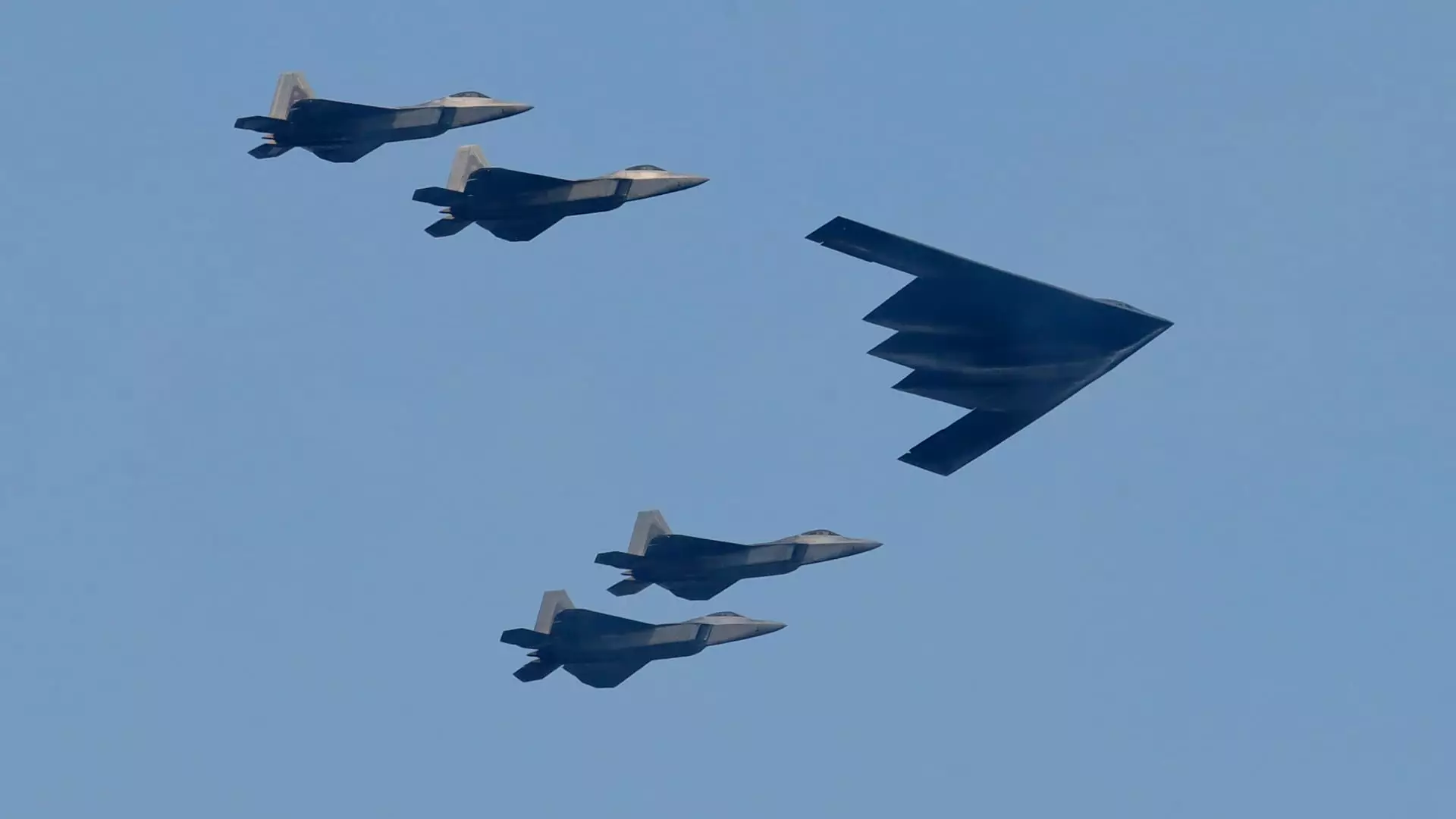The world watched with bated breath as President Donald Trump proclaimed a “very successful attack” on Iran, marking what he characterized as an “historic moment” for not only the United States and Israel but also for the global community. This extraordinary claim was accompanied by targeted strikes on three Iranian nuclear sites, including the notorious Fordo facility. As leaders around the globe weighed in, the reactions revealed a rift not just in opinion but in fundamental attitudes toward conflict, diplomacy, and the very fabric of international relations.
Trump’s professed triumph echoes a deeply polarized political landscape where rhetoric often overshadows reason. It evokes a dangerous dance between power and pride, where military might is mistakenly equated with moral high ground. His assertion that “first comes strength, then comes peace” encapsulates a jingoistic mindset that not only oversimplifies the complex tapestry of Middle Eastern politics but also disregards the myriad lives that could be irrevocably altered in light of such unilateral military action.
Reactions Split: Support and Condemnation
Israeli Prime Minister Benjamin Netanyahu rejoiced at Trump’s decisive moves, framed as necessary to ensure regional security. His belief that “peace through strength” forms a legitimate strategy convinces some that aggression has its place in diplomacy. However, such thinking raises a critical question: Does might truly create right?
Contrastingly, UN Secretary-General António Guterres warned that the escalation represents a perilous turn in an already unstable region. His statement that “there is no military solution” serves as a sobering reminder that wars often morph into cycles of vengeance and despair. Guterres preaches a return to fundamental diplomatic channels, which may seem quaint when juxtaposed against the roaring machinery of military action. Yet it is precisely this insistence on negotiation that remains our best hope for enduring peace — a conviction that transcends partisan divides.
From Caracas to Mexico City, leaders across Latin America reacted with unified condemnation. Venezuelan Foreign Minister Yvan Gil’s stark denunciation of U.S. military aggression reverberates with a call for de-escalation and dialogue. The sentiment is mirrored in Cuba’s swift rebuke, stating that such actions jeopardize global stability and violate international law. The insistence upon diplomacy should be our guiding principle, yet one wonders if it will be drowned out by the thunder of bombs.
Historical Context: The Cycle of Violence
To contextualize recent events, we must rewind the tape and scrutinize the historical relationships between the United States and the Middle East. Time and again, military intervention has crafted a narrative fraught with complex fallout, combining immediate gains with long-term ramifications that often spiral beyond control. Consider the repercussions of Iraq and Afghanistan — regions still grappling with the consequences of foreign intervention. As much as some might rip the pages of history from the annals of political rhetoric, they remain etched in the psyche of nations.
The urgency for peaceful discourse echoes not just through U.N. halls but also through individual lives disrupted by violence. The echoes of missiles and bombings reverberate far beyond soldiers in uniforms, extending heartbreakingly into civilian realms. The civilian toll always begs the question: how many lives must one wager for the sake of political posturing?
The Call for Centered Liberalism
In this swirling vortex of aggression, there lies an imperative for a nuanced approach rooted in center-wing liberalism. This ideology promotes reconciliation and compromise over brute force; it champions the need for understanding the diverse perspectives in a melting pot of disparate cultures and beliefs. The prevailing winds of nationalism and militarism create a tangible threat not just to nations but to our collective conscience.
This is a call to action for citizens and leaders alike: to foster dialogues that honor our shared humanity rather than exacerbate our differences. By committing to diplomatic solutions over military might, we just might steer the course towards a more stable and humane world. Alas, the choice remains starkly clear—continue down the path of destruction or blaze a trail toward cooperation and understanding, which is the only true victory we should ever pursue.



Leave a Reply